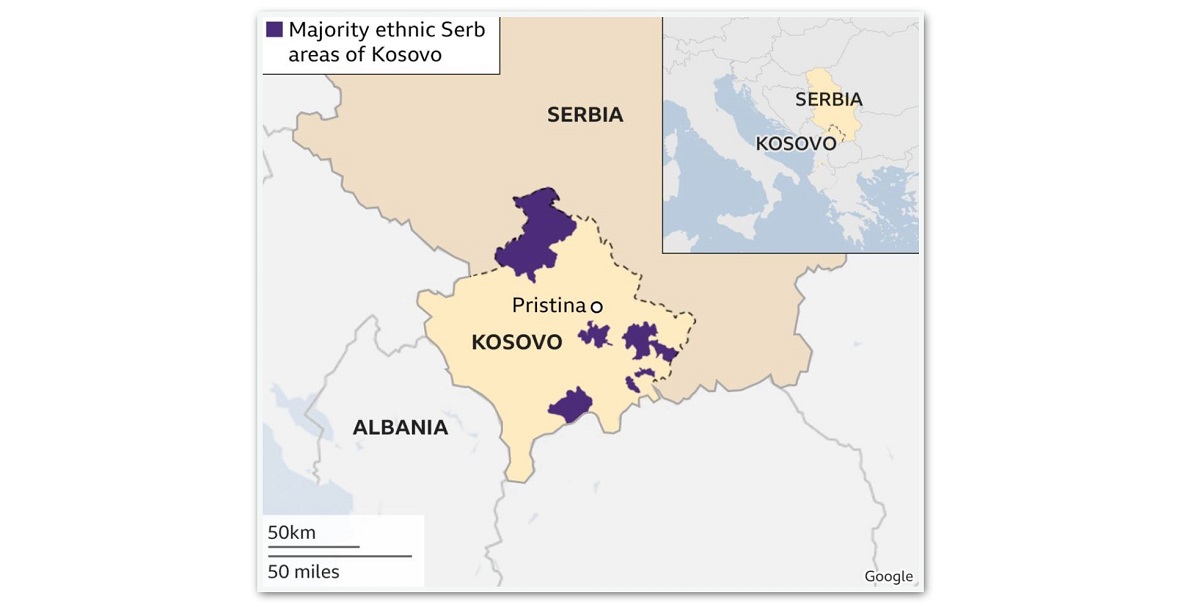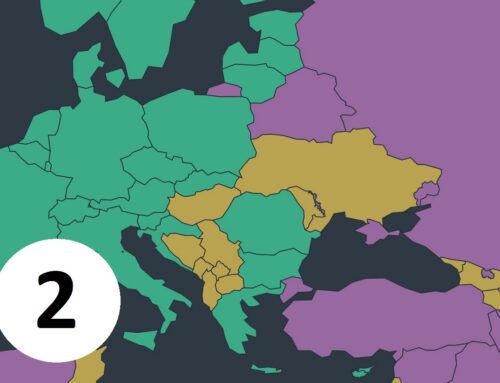Kosovo’s self-proclaimed independence became one of the stages of the collapse of Yugoslavia. During the period of disintegration of Yugoslavia when the region became embroiled in four years of warfare, the situation in Kosovo remained relatively tranquil. Within the Dayton Accords, which did not mention Kosovo per se, lurked another ticking time bomb for the devastated region. As Martti Ahtisaari, the UN Secretary General’s special envoy for Kosovo stated, the difficult relationship between Kosovo Albanians and Serbs was aggravated by ‘Milošević’s policies of oppression’, ‘systematic discrimination’ and his ‘brutal repression’ [1]. At that time, the Kosovo Liberation Army (KLA) intensified its guerrilla operations against Serbia opting for a militant policy. In 1999, NATO launched its air military campaign against Yugoslavia in an attempt to force President Milošević to accept the terms of the Rambouillet agreement and end widespread ethnic cleansing and killings of Kosovo Albanian civilians. Still, the NATO bombing campaign faced extensive allegations of varying weight, the most severe of which being the absence of Security Council authorisation or the consent of peoples in those NATO states that participated
in it [2].
On February 17, 2008, the Kosovo split from Serbia, a full decade after the culmination of a multifaceted conflict that was ‘both internal and international’ in nature [3]. This February Kosovo celebrated the 15th anniversary of its declaration of independence with solemn sessions and military parades; meanwhile in its northern part where minority Serbs have long resisted Pristina’s authority there were no such festivities. This comes down to the fact that the Serbian community there refutes the very notion of Kosovar citizenship as in their eyes it would mean recognition of Kosovo’s status as an independent state [4]. The ramifications of that fateful war are still present in the relationship between Kosovar Albanians and Kosovo Serbs.
In 2022, the tensions flared over seemingly trivial matters such as car license plates, almost provoking a new large-scale conflict. As part of its policy to assert authority over all of Kosovo territory, it’s government has for years wanted Serbs in the north to switch their Serbian license plates to ones issued by Pristina. On July 31, Pristina announced a two-month window for the plates to be switched over, triggering unrest, barricaded roads and massive resignations of ethnic Serb officials in northern municipalities. In light of these events, the EU has played the role of a mediator in the high-level dialogue between two parties. Thus, a recent European proposal drafted in February 2023 seeks to normalise the neighbourly relations by encouraging both parties to mutually recognise their official documents such as passports, diplomas and licence plates and national symbols [5]. Besides and further to its internal difficulties, Kosovo still also faces formidable obstacles with regards to its acceptance on the international stage with 106 countries refusing to recognise Kosovo’s statehood including five European Union members (Spain, Romania, Slovakia, Greece and Cyprus). With continued political ambiguity, the peace and stability of Kosovo and the region remains at risk. The non-recognition by some of the EU member states already blocks any practical actions to prepare for its admission to the EU. Nevertheless, on December 15, 2022, the Prime Minister of Kosovo, Albin Kurti, handed over to the Czech Republic, which holds the presidency of the EU Council, an application to join the community. Thus, Kosovo became the last Western Balkan country to apply for EU candidacy [6]. Still, the process of granting candidate status requires the consensus of all EU members, which makes the outcome uncertain.
Despite the international community’s strong desire for the leaders to reconcile, the actual implementation of European proposal seems to be long and thorny. Days after negotiations, Serbian President Aleksandar Vučić publicly announced in a domestic press conference that the talks were ‘nothing special’[7]. As public opinion polls show, Serbs do not want to give up on Kosovo, which has been at the very core of Vučić‘s nationalist narratives. A quarter of the population thinks that returning Kosovo to Serbia, with a wider autonomy, would be the best outcome of the dialogue [8]. The plan implies, inter alia, that Serbia will not prevent Kosovo’s entry into international organisations. Nevertheless, it is highly unlikely that Aleksandar Vučić who repeatedly said that Serbia would never accept Kosovo’s accession to the UN or recognise its independence will show flexibility in this regard. As a consequence, current dialogue between Serbia and Kosovo can not be considered a historic opportunity for a lasting peace but it will at least facilitate a more constructive approach to the neighbours’ bilateral relations.
References:
1. Report of the Special Envoy of the Secretary General on Kosovo’s Future Status (S/2007/168, 26 March, 2007)
2. Webber, M., 2009. The Kosovo war: a recapitulation. International Affairs, 85(3), pp.447-459.
3. Webber, M., 2009. The Kosovo War: A Recapitulation. International Affairs (Royal Institute of International Affairs 1944-), 85(3), 447–459. http://www.jstor.org/stable/27695024
4. Bertelsmann Stiftung, BTI 2022 Country Report — Kosovo. Gütersloh: Bertelsmann Stiftung, 2022.
5. EEAS Press Team. Belgrade-Pristina Dialogue: EU Proposal – Agreement on the path to normalisation between Kosovo and Serbia. EEAS, 2023.
6. EWB. Kosovo leaders signed application for EU membership. EWB, 2022. https://europeanwesternbalkans.com/2022/12/14/kosovo-leaders-signedapplication- for-eu-membership/
7. Alexandra Brzozowski. Serbia, Kosovo move closer to EU-brokered deal on normalising ties. Euractiv, 2023. https://www.euractiv.com/section/enlargementneighbourhood/news/serbia-kosovo-move-closer-to-eu-brokered-deal-onnormalising-ties
8. Maja Bjeloš. Attitudes of Serbian citizens regarding relations with Kosovo and Albania, analysis of public opinion poll. BCSP, 2022. https://bezbednost.org/wpcontent/uploads/2022/03/Attitudes-of-Serbian-Citizens-Regarding-Relationswith-Kosovo-and-Albania-Analysis-of-public-opinion-poll.pdf
Picture: BBC


